
Indonesian
Muslims Congress (KUII) VI held in Yogyakarta, was officially closed by the President of the Republic of Indonesia Joko Widodo (Jokowi) (krjogja)" width="300" height="193" /> Indonesian Muslims Congress (KUII) VI Yogyakarta was officially closed by the President Joko Widodo (krjogja)Jakarta, 21 Rabiul Akhir 1436/11 February 2015 (MINA) — Indonesian Muslim Ummah Congress (KUII) VI held in Yogyakarta since Monday, was officially closed by the President of the Republic of Indonesia Joko Widodo (Jokowi), Wednesday (11/2) with a call for Indonesian Muslims unity.
The three-day KUII Congress issued “Yogyakarta Treatise” containing seven-point recommendations, Mi’raj Islamic News Agency (MINA)’s reporter Zaenal Muttaqien reported directly from the congress venue.
Yogyakarta treatise was read by the Chairman of Indonesian Ulema (Scholar) Council (MUI) Prof. Dr Din Shamsuddin then submitted to President Jokowi.
The treatise stated that Muslims as the majority population have great responsibility to maintain, escort, defend Indonesian state based on Islamic spirit of rahmatal lil alamin (blessings to the whole universe and its contents)
Also Read: Ground Movement Hits Central Java: Residents Evacuate, Dozens of Homes Damaged
Here are the points of treatise:
First, calls on all Indonesian Muslims to unite and close the ranks to develop cooperation for strategic coalition in organizations, institutions as well as political parties in the efforts to strengthen political, economic, socio-cultural fields that is just and civilized for Indonesians.
Second, calls on stake holders to practice polite way in their jobs, abandon any means of injustice, and makes politics as a means to bring prosperity, security and peace of the nation.
Third, calls on all Muslim components to defend grassroots by developing democratic economy based on equity and justice as well as the development of sharia-based economy, both in financial and real sectors and rearranging the state control over natural resources for the prosperity of the people, abolish regulations and policies which are contrary to the state constitution and harming people.
Also Read: Indonesia Reaffirms Full Support for Palestinian Independence Before Jordan’s King
Fourth, calls on all components of Indonesian Muslims to empower themselves to develop economic potentials, improve the capacity of human beings, strengthen micro, small and medium enterprises based on community organizations, mosques and Islamic boarding schools, increase the role of women in economy, encourage capital investment to public and advocate pro-public government policies.
Fifth, calls on the government and the whole society to be aware of and avoid bad culture that is contrary to Islamic law and national cultural values, such as drug abuse, alcoholism, promiscuity and human trafficking.
It could be done by improving moral education in schools and families, strengthening families’ resilience and the good examples from public figures, community leaders as well as the parents. The government must stop the regulations and policies that could encourage the entry of harmful culture and apply the firm and consistent law enforcement.
Sixth, expresses deep concern over the changing lifestyle of the people who left Islamic characteristics as a result of the swift currents of cultural and economic liberalization.
Also Read: Majenang Landslide: 21 Missing in Central Java
Therefore, KUII urges state officials and stakeholders to undertake concrete steps to replace and rearrange the policy landscape of Indonesian life in order to remain Islamic and Indonesian in term of culture.
Seventh, expresses deep concern over the condition of Muslims in some countries (especially Asians) who lose their rights as citizens. KUII urges the local state officials to rearrange regulation and policy based on the principles of human rights.
KUII calls on the government and Muslims in Indonesia to provide assistance to them in a spirit of brotherhood and humanity. (L/R11/R03/P3).
Mi’raj Islamic News Agency (MINA)
Also Read: BPOM Sets MURI Record for Producing 810 Reference Standard Compounds





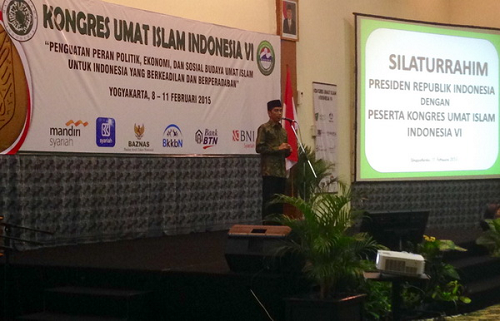


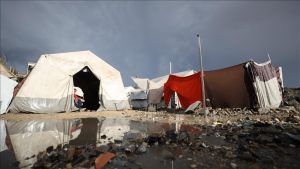
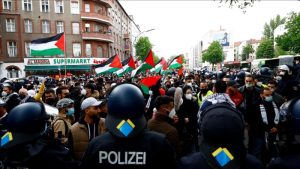
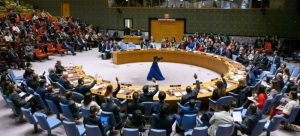

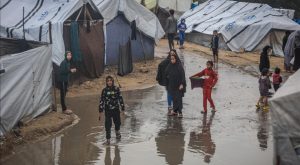

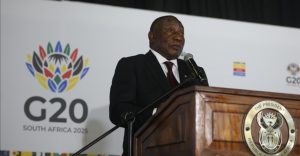



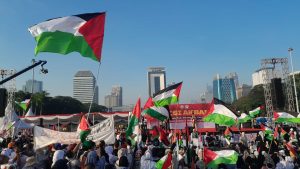
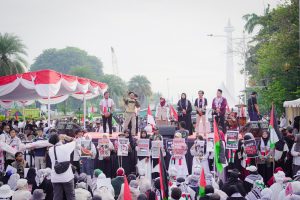
![MUI Chairman for Foreign Relations and International Cooperation, Sudarnoto Abdul Hakim (center) at the One Million Women for Gaza Press Conference entitled "Women Boycott Pro-Israel Products" held at the Swiss-Belinn Cawang Hotel, East Jakarta, Thursday (3/7/2025). [Photo: Arina/MINA]](https://en.minanews.net/wp-content/uploads/2025/07/20250703_144042-scaled-1-300x225.jpg)











 Mina Indonesia
Mina Indonesia Mina Arabic
Mina Arabic